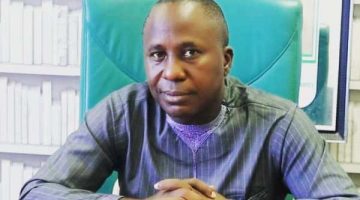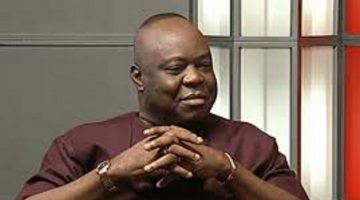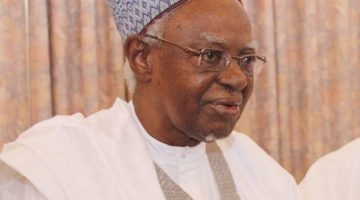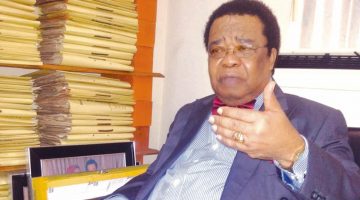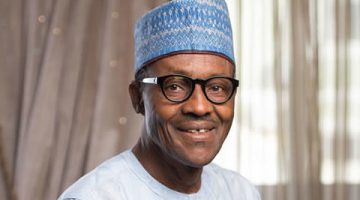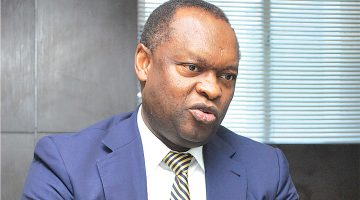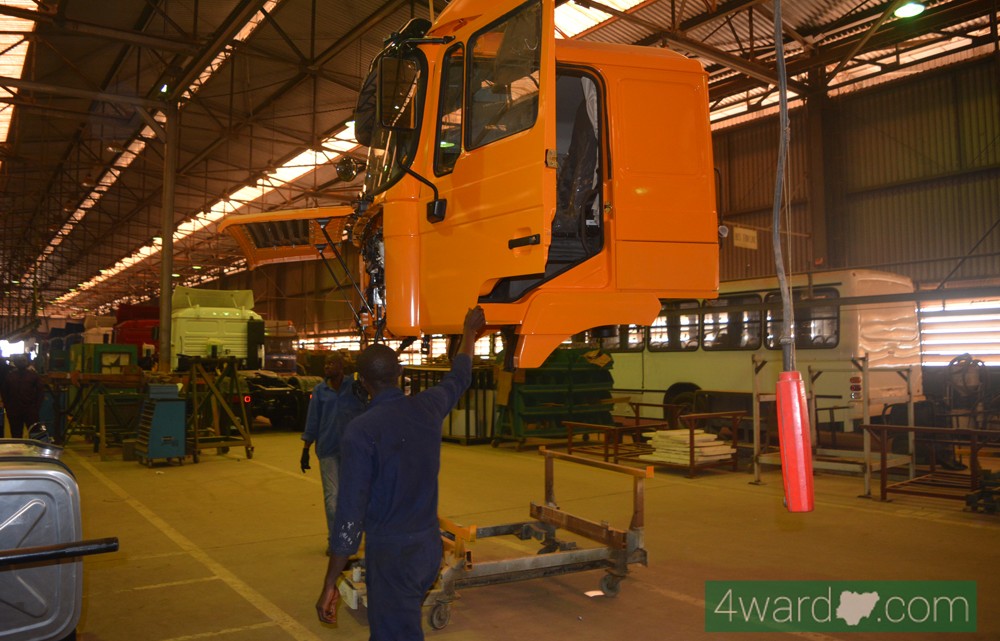THE history of the Nigerian Automobile industry dates back to early 1960s when private companies like UAC, Leventis, SCOA, BEWAC, and RT Briscoe pioneered the industry with their auto plants, using either Completely Knocked Down (CKD) or Semi knocked Down (SKD) parts.
The Federal Government made an entry into the business in the 1970s through agreement it had with a number of auto plants in Europe to set up two car passenger and four truck and light commercial vehicle assembly plants, using completely knocked down parts.
The agreement later gave birth to Peugeot Nigeria LTD (PAN), Kaduna; Volkswagen Nigeria LTD (VWON), Lagos; Anambra Motor manufacturing Company (ANAMCO), Enugu; Styer Nigeria LTD, Bauchi; National Truck Manufacturer (NTM), Kano; and Leyland Nigeria LTD, Ibadan. These companies were however privatized in 2007.
Before they were privatised, all the automobile firms had capacity to roll out 108,000 cars, 56,000 commercial vehicles, 10,000 tractors, 1,000,000 motorcycles and I,000,000 bicycles yearly. But the assembly plants could not survive the harsh economic environment, orchestrated by many factors, so they collapsed.
Many of the auto component manufacturers, including Dunlop and Michellin also closed shops after establishing Rubber plantations in Calabar and Benin respectively, for the sourcing local raw materials. The farms are still in existence, producing raw materials for export to feed the factories now located outside Nigeria.
The Director of Policy and Planning at the National Automotive Council, Luqman Mamudu, attributed the woes of the pioneer auto assembly plants to the absence of protectionist policy in the country, as imported vehicles were on low tariff.
“I believe there was no sufficient protection for the Pioneer Assembly Plants (PAP). Nigeria’s average tariff was the lowest among all countries that adopted automotive policy as a strategy to develop their industry at the time the most emerging economies did. Their average tariff against import of fully built vehicles was over 100 percent. Nigeria’s average is 25 percent till date, while some countries continue to maintain tariff in excess of 200 percent. Total ban on second hand vehicles still apply in most countries with similar ambition. Some even banned fully built units (FBU) all together. Nigeria’s tariff level was too small to encourage inflow of real automotive investment and the technical partners did not help matters. Therefore, investment was largely limited to government interest. Local entrepreneurship was limited, so there were no innovations, no institutional frameworks like the National Automotive Council (NAC) to guide development “
According to Mamudu, the infrastructural facilities, which the government is now trying to provide towards establishing capacity for “homologation were completely non-existent”. These, he said, include laboratories for materials, emission and components in Lagos, Enugu, and Zaria.
“The adoption of free trade policy by Nigeria in the early eighties without the need to protect the critical industrial sectors finally undermined the industry. The Nigeria automotive industry at the time wasn’t really growing at the pace expected.
Basically, the policy, by extension, is aimed at attracting Direct Foreign Investment (DFI), revive the comatose plants, and encourage transfer of technology and advance manufacturing activities needed for the production of affordable vehicles in the country.
This productive aspect of the Nigerian economy is necessary because of over reliance on foreign automobile products, which depleted the country’s foreign exchange reserve by $3.5 billion, to make the sector the second highest user of foreign exchange in the country last year .The expectation is that the policy will encourage the domestic auto industry against the importation of fully built-up vehicles, which presently dominate the market and stimulate local input.
Going by the fact that there are about 2,000 component parts in a single vehicle, the new policy, if well implemented and if Nigerians become more patriotic to patronize the local industry, it could lead to the development of small-scale parts manufacturers.
The parts or components of vehicles are manufactured mainly by small and medium scale industries for the main manufacturers. They will also serve the spare parts market estimated at N30 billion yearly.
According to the National Automotive Council (NAC), no fewer than 23 new assembly plants have either indicated interest to participate in the evolving auto industry, or had already commenced production or are at various stages of setting up, while many others are still carrying out feasibility studies.
Mamudu gave the names of new entrants into the auto industry as Innoson Vehicle Manufacturing Co. Ltd, ANAMCO, LeylandBusan, National Trucks Manufacturers, PAN Nigeria LTD, Proforce LTD, ScoaNigeria PLC, Stayr Nigeria LTD, Stallion Nissan Motors Nigeria LTD, VON Automobile Nigeria LTD and Dana Motors.
Others, he said are Nigeria Sino trucks LTD, Hyundai Motors. Nigeria LTD, Nigeria–China Manufacturing Company LTD, Honda Automobiles West Africa LTD, and few others.
One of the reference points, as far as the success story of the policy implementation is concerned, is the reviewing of the Kaduna plant of PAN Nigeria. The Peugeot maker and its technical partner, AP of France had parted ways years ago. But with the introduction of NAIDP, there was new approach, that led to the resurgence and production at the plant.
Although, the policy has attracted marginal investment to the auto sector, there is no corresponding investment in the local component-manufacturing segment, which is very critical to the success of the policy.
Stakeholders in this segment said funding was paramount for the revival of the comatose component manufacturing companies.
The Chairman, Motor and Miscellaneous Assembly (MMA) sectoral group of the Manufacturers Association of Nigeria, Chief David V.C. Obi said the sector had been comatose for over 17 years, adding that efforts are on to revive it.
“The lack of integrated plans to develop local content was one of the reasons for the failure of automotive industry in the past. But a stakeholders’ meeting was convened last month to discuss the prospect of developing local content, and to form a strong automotive component industry that will produce vehicle parts and components for locally assembled auto products. There are plans by stakeholders to form automotive component system with tier1 and tier2 suppliers, which will also carry out independent research and development.”
To do this perfectly, he said, auto component manufacturers were divided into plastic and rubber, chemical, welded parts metal and electrical component to identify parts and components to be developed, conduct national industrial gaps and required skills for manufacturing, technical demands and process, including market demand.
“We want serious auto manufacturers that will start, from the scratch, with local content. Auto manufacturing is not a small business. Nigeria must show high level of seriousness for foreign investors to come and start from the beginning. That was what they did in the 1970s. Peugeot built us up and taught us what to do. They also organised us because they were looking for suppliers”.
He advised concerned agency of the government to “harmonise the auto manufacturers so as to guarantee the right volume necessary for the survival of component manufacturing companies,” when they are eventually established.
Mammudu in response to enquiries on what his agency was doing to develop local content, he said: “ The Nigerian Automotive Manufacturers Association (NAMA) and the Automobile Local Content Manufacturers Association Of Nigeria (ALCMAN) seat on the Governing Board of NAC. So their interest has been well attended to, although within limited fund.
From 2004 till date, over 11 billion of NAC automotive Development fund has gone towards funding the activities of the members of these associations almost exclusively.”
According to him, “the impact of the government’s effort has been limited because independent quality automotive laboratories have not been in Nigeria and this is what the new policy seeks to address.”
He said three laboratories for automotive homologation are being built in Lagos, Zaria and Enugu to drive local content “because once you are able to produce to international specification, your products will be accepted into the global supplier chain as well as gain acceptance”
Continuing, he said, “There will be establishment of automotive supplier parks in three easily identifiable automotive clausters in Nigeria like Anambra/Enugu; Kano/Kaduna, Lagos/Ogun. Letters have been sent out to the various state governments in these areas to assist with land space.
Responses have been received from Kaduna and Osun state. In fact, NAC has already taken possession of 200 hectare of land offered, for free, by Osun state government.”
The parks he said, will act as a one-stop shop for automotive component manufacturing because it will have its full complement of dedicated infrastructure, including light, water,


